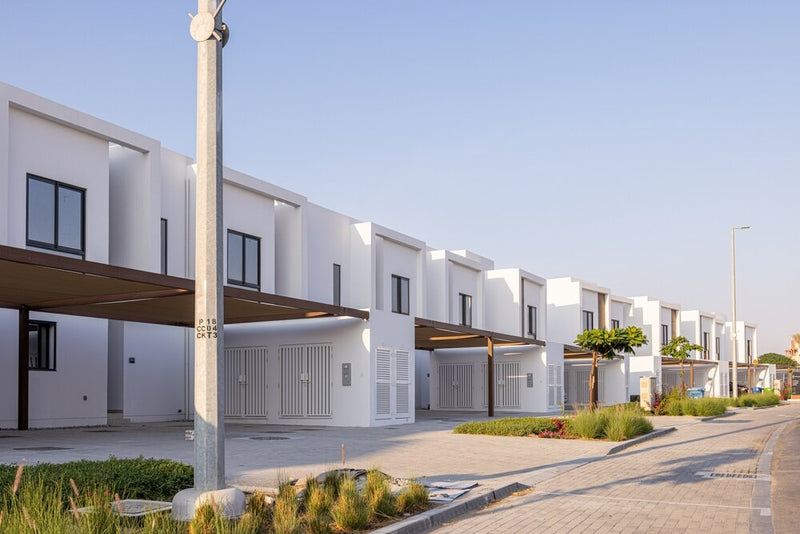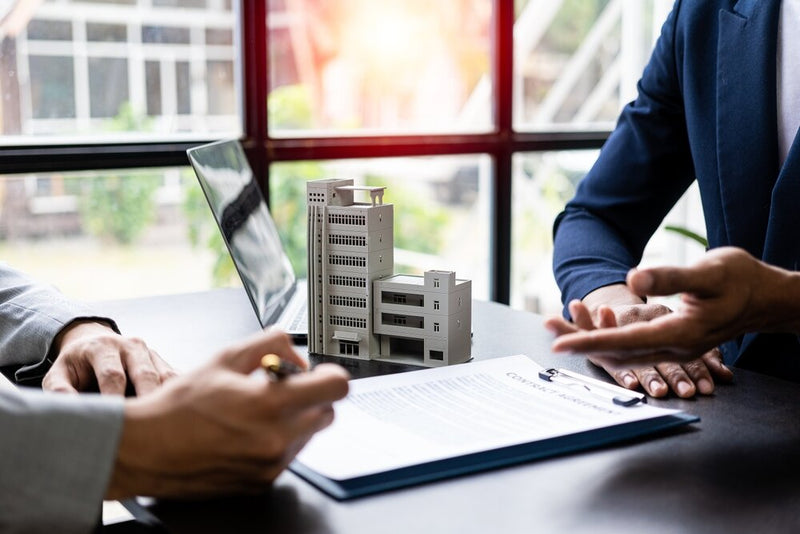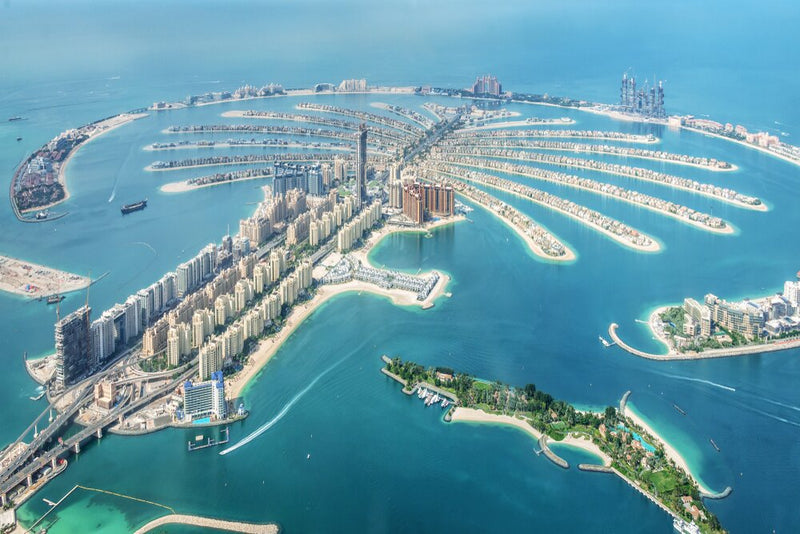
by Rahmeh Tar
6 Steps to excel as a Real Estate Agent in Dubai in 2024
6 Steps to excel as a Real Estate Agent in Dubai in 2024 Dubai's booming property market offers exciting prospects for real estate agents. However, it requires dedication to rise above competitors. Developing client relationships through honesty and expertise lays the groundwork. Earning a license by passing qualification exams demonstrates proficiency in local laws and processes. Staying up-to-date via constant training keeps skills honed. Marketing listings creatively across platforms expand visibility. Maintaining organized records and effective communication builds trust. Offering comprehensive service through property searches and negotiations keeps clients satisfied. Pairing a strong work ethic with patience amid fluctuations yields long-term success in this vibrant industry. Mastering Real Estate in Dubai: 6 Tips for Success Here are some steps you need to know: Step 1: Obtain a Residency Visa (For Expats) The first step for non-Emiratis desiring to enter Dubai's competitive property sector requires securing a long-term residency visa. Common options include obtaining sponsorship from an employer or a business partner visa for self-employed individuals. An investor visa allows residency through property investment. New firms can apply for a service agent license to sponsor visas for key personnel if Emiratis hold a stake. Complying fully with immigration procedures prevents roadblocks down the line. With fast processing now available, visas help future agents integrate into the local landscape to network effectively and grasp cultural nuances crucial for client care. Step 2: Obtain the Broker License Gaining a broker's license represents a pivotal step towards practicing legally. The Dubai Land Department issues these permits upon fulfilling its stringent criteria. Applicants must have a real estate degree, one year of experience, or pass accredited exams testing knowledge of local codes and market practices. Additionally, brokerage firms sponsor licenses while agents work as employees. The application process involves submitting documents verifying identity, credentials, and financial stability. Strict due diligence guards standards within this lucrative sector. Once licensed, new brokers can tap the network of industry veterans for valuable mentoring to sharpen skills from the start. STEP 3: Find Employment with a Brokerage Securing a position with an established brokerage amplifies budding agents' competency while gaining a client base. Larger firms offer top-tier training, mentorship, and resources to hone crucial soft talents like negotiation and customer engagement. Real estate development companies in Dubai construct new residential, commercial and mixed-use projects that shape the skylines and urban landscapes of the emirate. Starting from the bottom as an assistant or renting a desk permits invaluable early exposure to deals. Learning industry-leading tools and practices occurs through shadowing senior associates. Brand recognition comes with affiliating top locally-known or international brokers. Salaries often include commissions, incentivizing high performance that leads to independence. Hard work paves the way for managing one's portfolios and teams someday. STEP 4: Start Building Your Clientele and Portfolio The thrust towards independence happens hand-in-hand with the cultivation of loyal buyers and sellers. Strategic networking at industry conferences and community gatherings sparks meaningful connections. Tailored social media profiles help potential clients tap into market advice and listings. A positive online and offline brand grows by nurturing a reputation of trustworthiness, responsiveness, and expertise through consistent client interactions. Obtaining referrals from satisfied patrons accelerates progress. Simultaneously, handling property searches and transactions as primary agents empowers future portfolio management abilities. Attaining a designated desk symbolizes egress towards driving one’s successful agency practice over the long haul in Dubai. STEP 5: Set Prices Appropriately to Maximize Value Maximizing property value requires shrewd pricing. Agents must research market comparables and trends to advise optimal listing amounts. Neither too high nor too low prices prospectively thrill buyers or get negotiations stuck. Dynamic factors like location, size, amenities, and condition dictate pricing power. Leveraging technology portals and networks furnishes timely sold data and inventory insights for price benchmarks. Err cautiously high to permit wiggle room in talks. Evaluate makes and models whose similar attributes have sold faster or at a premium recently. Adjust rates pegged to demand surges or dips. Guide willing clients to understand the rationale behind pricing without being greedy. Generate the highest sale amount with a balanced, analytical approach. Working with reputable real estate agency in Dubai is often the best way for professionals to establish themselves and build a client base in the lucrative property market of Dubai. STEP 6: Remember That Knowledge Is a Powerful Asset in the Real Estate Business Remaining a constant student boosts credentials and career lifespan in Dubai's vibrant market. Consuming materials covering economic fluctuations, construction guidelines, and land policies keeps expertise current. Attaining specialized designations via realtor associations or university programs signals a commitment to ongoing learning. Seminars track product diversity and stipulations impacting feasibility. Following industry figureheads on social channels captures evolving strategic insights. Requesting client feedback highlights areas needing refinement, such as digital marketing savvy. Expediting transactions sometimes necessitates understanding finance and legal nuances, too. Ultimately, continually expanding comprehension of internal and external variables affecting the landscape fortifies long-term capabilities to serve all customer needs proficiently. Frequently Asked Questions What qualifications or licenses are required? Agents must obtain a Dubai Real Estate Regulatory Agency (RERA) license by passing exams testing knowledge of rules, laws, and procedures. A bachelor's degree and relevant experience or accredited real estate courses are mandatory. What skills are most important? Core abilities include strong communication, negotiation, problem-solving, and client advisory skills. Agents must have in-depth local market expertise and keep up with economic shifts. Proficiency in English and Arabic enhances services. How do agents get new clients? Developing an online presence through professional social media profiles and websites builds brand recognition. Networking within the community and at industry events expands connections. Referrals from happy clients become the most valuable marketing. What is the income potential? Income depends on commission structure, but top-performing agents can earn over $100,000 annually with experience. Consistent client satisfaction, sales volume, and team-leading roles boost earnings potential over time in this lucrative field. Conclusion Breaking into Dubai's luxury property market demands ambition, focus, and effort. While initial steps require qualifying exams and administrative tasks, the work involves cultivating client relationships through outstanding service and market knowledge over many years. Constant skill-building equips realtors to navigate industry shifts adeptly. Those opting for a career in this glamorous sector must exude passion and dedication to keeping abreast of trends. Only by prioritizing honesty, dependability, and expert advice will an agent thrive long-term. For individuals driven to reach the top through integrity and creativity, real estate offers a dynamic career path in one of the world's most coveted destinations.






